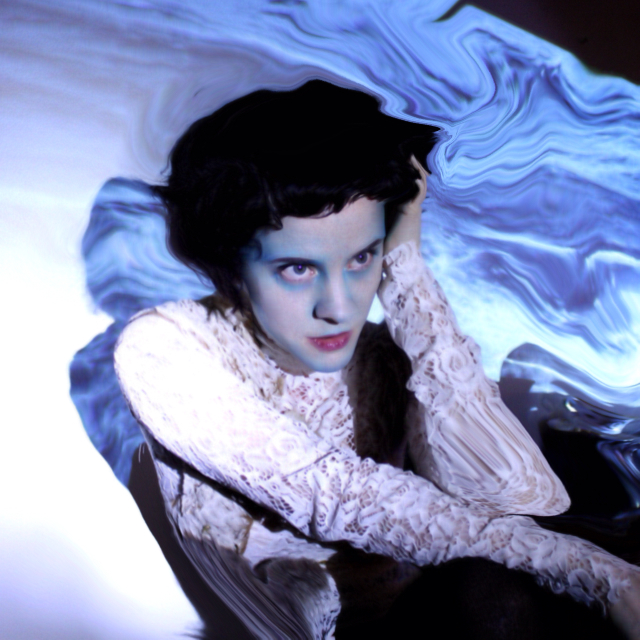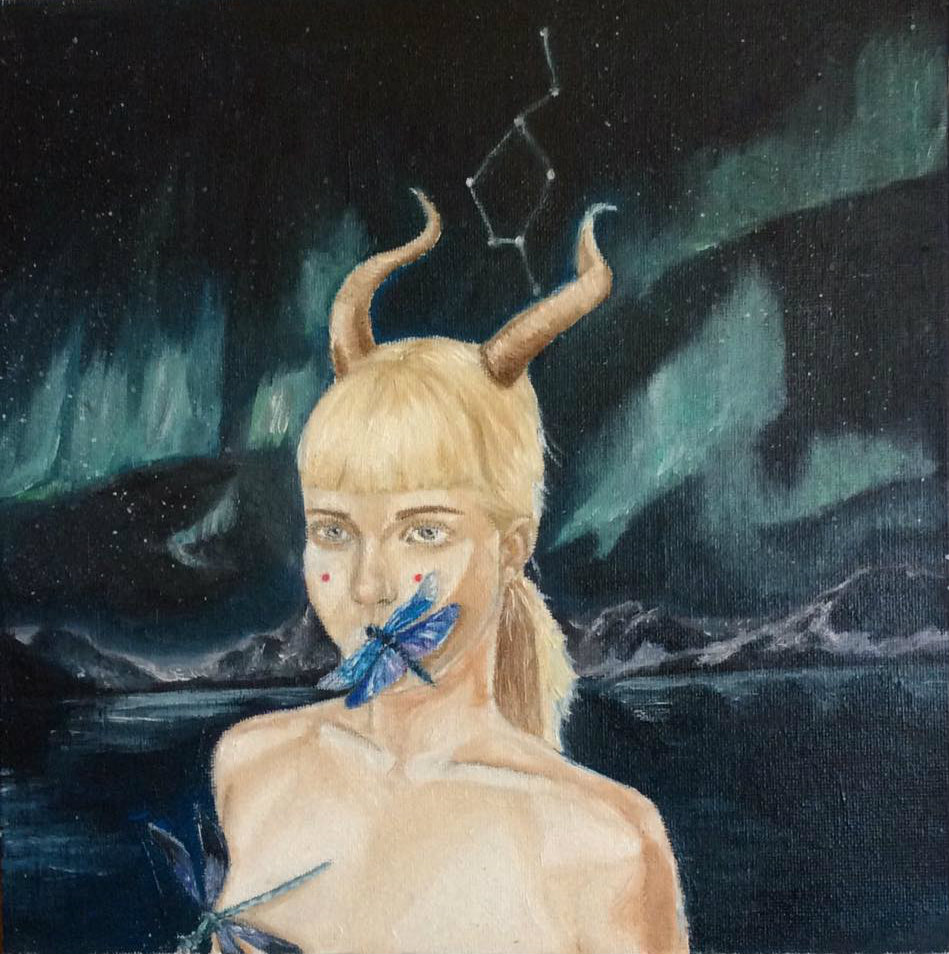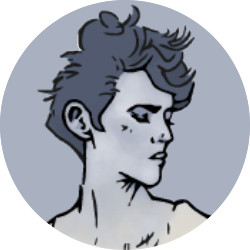
The Interview
It’s been two years since Endling. Did you intend or anticipate it taking so long to put out another record?
Quinne: No, everything always takes longer than I hope or think it would take. I did release the mixtape and the music video in between, so those took a bit of time. I feel like I’m starting to get faster at writing songs, but I still get frustrated at how long it takes me sometimes.
Is there any particular reason why it does take so long?
Quinne: Probably a bit of a perfectionist problem; a couple of the songs were re-recorded in different ways, two or three times. Purity Control and Barnacles were both completely re-recorded in a completely different way: in completely different time signatures and stuff. I definitely fiddle with things for a really long time: fiddle with all the little details. I mix it all myself and I’m not very fast at that.
So what was your overriding emotion when you did finally release it?
Quinne: Leading up to releasing it, I was really impatient and just wanting to get it out there, so any kind of little thing that takes any amount of time was really aggravating. But, being able to put it out was really satisfying. I guess, because I am a bit of a perfectionist, once it’s actually out there, it’s exactly what I wanted to put out.
Are there no elements that you’re not so sure about then? No minute causes of irritation?
Quinne: [laughs] Maybe in a year or two, but I would not put it out if I felt that way. No, everything has to be perfect when I put it out. [laughs] There’s some subject matter that I’m sometimes like, “Should I have done that?” But it was more important for me to talk about stuff that I think needs to be talked about instead of making myself as comfortable as possible. So I made myself a bit uncomfortable, but I’m happy with my decision.
What are the particular aspects of Vile that you’re most proud of?
Quinne: I feel like it’s a lot more cohesive than Endling. I feel like I’m getting better at making what I want to make. I’m happy with the kind of themes that ended up coming together. When I was writing the songs, I didn’t have anything in mind for an overriding theme, but one ended up manifesting. I was really happy about that: I feel like the subject matter is cohesive and pointed.
What is the subject matter, and how did it come about?
Quinne: It ended up being quite political, but political in the sense of coming from a very personal place. There’s a lot of anger at institutions of power, imperialism and privilege that I was personally feeling. When you write that stuff down it kinda ends up becoming a bit of a political statement, I guess.
Have you previously imagined yourself making music which has that political edge to it?
Quinne: The band I was in before, MYTHS, was just political. It was not personal, not emotional — it was straight-up comments on politics: mostly feminism. So when I started my own project, I was like, “Personal stuff!” [laughs] It was definitely me diving into the other end of the pool and just being able to do something that I hadn’t been able to do before. So, I guess this is a bit more meeting in the middle…
I’m still angry. [laughs] There’s still so much happening in the world that personally affects me and I want to talk about, but I can kind of come at it from a personal place, which, to me at least, is more powerful. I’m coming at this from my own experience… People, a lot of the time, talk about politics like it’s disconnected from your life. People will tell actors or musicians, “Stay out of politics!” But that’s assuming that politics aren’t your life, and I think that’s a privileged position to be in: to keep politics at arms-length and say that only people who have a political science degree should be talking about that. Maybe you can say that when it doesn’t directly affect your life, but when it does, you need to be able to talk about it, and you need to say something and be involved.
To be fair, the people who shout down a musician’s right to an opinion only seem to do that when said musician takes a stance they disagree with.
Quinne: [laughs] I mean, I can understand somebody feeling weird if a musician is trying to influence other people, but we need to talk about this stuff. I’m glad that people are a bit more involved now: saying, “This affects me. This affects people. This is important.”
Okay, so the last time we spoke, you talked about being mired in constant self-doubt. Were you able to overcome that more easily when making this record, or did it prove just as big a barrier?
Quinne: I think it’s getting, maybe, a little bit better; I think I’m a little bit more confident… but, I still struggle with that. I still wonder if anybody’s going to like it. But, when I listen to it, I’m like, “No, no — this is good. I think this is good.” But anytime anyone says that they like it is a relief, because then I feel like maybe I’m not crazy.
What was the first song you wrote for the record, and to what degree did this track determine the direction you headed thereafter?
Quinne: Purity Control, I think, was actually the second song that I ever even wrote as Ivory Towers, and it was re-recorded, like, three times, maybe. There’s a bunch of different versions of it now, and I didn’t get one that felt right until this time.
I don’t know if it influenced the other songs, but it definitely contributes to the political aspect of the album. It’s probably the most outright political song on the record, and it’s also the one that I’m kinda like, “Ooohhh…” [laughs] It took a bit of back-and-forth waffling to put on there, but I did it.
Have you found that people have picked up on the political commentary?
Quinne: I know that people have read the bio about it, so that makes it obvious that it’s political. Gorilla vs. Bear did a really good write up about it; I think he really got where I’m coming from. But I haven’t heard feedback yet from listeners: if they felt like it was political or not. I know my lyrics can maybe be a little bit vague, so I don’t know how obvious it would be to a listener.
How did your process differ, if at all, this time around?
Quinne: I’m getting a bit better at putting songs together. I think the songwriting process was a little bit more straightforward. I definitely used a lot more electronics: I got a keyboard that has some nice sounds on it, so I was using that a lot. I went back and listened to music that I really liked, realised how much percussion was on it, and realised that I could definitely use some more percussion. So I made things a little bit more upbeat and electronic than the last one.
It seems to have given your songs a fuller sound than on Endling. Would you agree with that?
Quinne: I haven’t gone back and listened to Endling, actually, but I’m sure they do. [laughs] They probably have way more layers now. I’m a layer freak: I just layer things on top and on top and on top until it’s just an ocean of sound. [laughs]
What was the most important thing you learned during the process of this record?
Quinne: Every time I make a song, I learn something technical. I learned a lot from the music program I use: different techniques and stuff like that… I think it just made me more confident in my songwriting abilities, and feel like I can do more. With Endling, I was learning a lot, and would kind of let the song do what it would do. [laughs] I’d be like, “What’s happening here…? Okay, that’s happening. I’ll just let that happen because I don’t know what else to do.” Now, I feel like I’ve got a bit more of a system and an ability, and I can change things around more: mould things to my will a little bit more instead of just following where the song wants to go.
When we spoke before you mentioned a habit of putting out music thinking it’s normal, only to find out that others find it a bit weird… Same again?
Quinne: Probably. I haven’t read anything so far saying that it’s incredibly weird, like last time — someone said it was almost unlistenable because it was so experimental. [laughs] Not quite, but almost… This time, from what I’ve read, it seems like people are enjoying it, and it’s been called unusual, but no-one’s said that it’s completely from another planet or anything. So, it’s possible it’s just not as weird. It’s probably still a little bit weird. [laughs]
On a related note: When we spoke last, you said that you were interested in making music that was more accessible with poppier production, whilst also creating songs that are the exact opposite, only barely qualifying as music. Do you feel you were able to successfully achieve both of those things?
Quinne: I was thinking about that. I remembered that I told you that, and I was like, “Did I do that?” I think it is more accessible than Endling. Whether it’s, at the same time, weirder… I think maybe, but in other ways. I think No Devil Lived On is maybe not immediately super experimental, but that was something that I’ve attempted five different times, and I kept failing. I wanted to make an audio palindrome — so the song, if you listen to it backwards, would sound exactly the same — and I was like, “I have to do this!” I kept failing, but with No Devil Lived On I finally achieved my goal. It definitely controlled what I was able to do in the song, and how the song ended up sounding; there were so many parameters that the song had to line up for that to work. To me that was, in a way, more experimental.
Sounds difficult!
Quinne: Doing the drums was the hardest. [laughs] Drums are really dynamic: forwards it goes, “Doosh!” but then when you hear it backwards it’s a “Shoop!” It would sound totally different, so trying to find a drum sound that would still kind of sound like drums when it plays backwards was really hard. [laughs]
Did you have any reference points for how to go about doing it?
Quinne: No. I imagine someone else has done it, but I don’t know if they have. I think that’s why it took me so long: just figuring out how I would go about doing that.
Has the process of making Vile, or the finished work itself, changed your perception of Ivory Towers?
Quinne: Yeah. Originally I wanted Ivory Towers to be more quiet, very organic sounding and very personal. So this has definitely changed that; apparently I can’t resist talking about politics, and I can’t resist using synth sometimes. But it’s been enjoyable. It’s been enjoyable playing some of the faster, louder songs live. So… now I don’t know what I’m doing. [laughs]
This week, I’ve definitely removed myself completely from the outside world and the news cycle. I haven’t been looking at anything because I was just catatonic: I was so upset. I got some Sandman books out of the library, and I’ve just been like, “Maybe I’ll just write fantasy stuff for now.” I just want to live in a fantasy land, because it got too real. But I’m glad that I at least have, to me at least, some strong political statements out there right now.
Would you not say that the politics of Vile already exists within a fantasy shell, so to speak? I mean, ambience-wise, it doesn’t sound like the grim, hard reality of the world: there’s definitely a magic to it.
Quinne: Yeah, well it’s admittedly political stuff couched inside fantasy anyway: Hel’s Belle’s and No Devil Lived On are political statements that are completely living inside fantasy worlds. No Devil Lived On: I was watching these castle documentaries — I think you saw my tweets about this — and Edward I was invading a country in every episode. You’d be watching, and you’d be like, “Oh, we’re in Ireland now.” And then… Edward I would pop up! You’d be like, “Fuck off, Edward! Stop it!” [laughs] I was like, “Fuck that guy. That guy’s the worst! Fuck Edward I!” I was really angry about him, and for some reason — this tends to happen when I’m alone in the house and I’m working late at night: I get weird ideas — I was thinking about maenads, which are one of my favourite creatures, and they’ve been one of my favourite creatures for a long time; they’re the female followers of the Greek god, Dionysus. They look human, but they’re superhuman, and they’re wild women; they’re kind of a metaphor for drunkenness, in a way. They basically run in packs through forests, and anything that’s in their way they rip apart with their bare hands. So if there’s a bull, they’ll just rip it apart; if there’s a tree, they’ll rip it apart. Fire can’t hurt them, iron can’t hurt them: they’re a force. So I was like: What if Edward I ran into a bunch of maenads and they ripped him to pieces? [laughs] I was like, “That’s crazy.” And then I was like, “That would be hilarious if I wrote that into a song.” So I did. It was my political statement against imperialism, but couched in a very, very high fantasy setting. [laughs] I felt like I stuck it to Edward a little bit.
And returning to your comment about how you’re enjoying playing some of these songs live: I know you said before that, some of the songs you’d written, you couldn’t even play live because they were too delicate, so how has being able to have a more expansive live show affected your project?
Quinne: I still had to change these songs around a little bit to be played live, but it’s definitely allowed me to play shows that are a bit more high-energy. It’s definitely allowed it to be a bit more energetic. I mean, it’s still not a dance party. [laughs] It’ll never be a dance party, I’m sure, but it’s allowed the live show to take on different forms if it needs to.
Finally, what does Vile (the record) mean to you, both as a person and as a creative?
Quinne: … I guess, to me, it was just like an outlet for all of the anger and all of the hurt that I feel whenever there’s an attack on people who don’t have privilege and power. It’s my middle finger to people who use privilege and power to hurt others…
… And, I guess, I have this thing that I have a hard time resisting doing, which is being a little bratty, sometimes: just poking the bear, you know? Just going over the top in tiny little ways. Sometimes I think some people would get it, and then sometimes other people might get a little bit offended. [laughs] I was kind of jokingly saying that Hel’s Belles is a little bit about eating men. [laughs] Just a little bit; a tiny little bit. And that’s my taking something and just pushing it a little bit more. But it’s not entirely about that; it was just like a little joke inside the song. That song’s more about how, throughout history, every reign falls; every empire will eventually crumble and kings will eventually get beheaded. It’s about: if you’re privileged, you have power, and you’re treating the people who don’t have privilege and power badly, it’s only a matter of time until they eat you. So yeah: I’m being a little bit bratty.
The people that might be offended by something like that are highly likely the ones you want to offend anyway though, right?
Quinne: Maybe, yeah. I mean, I don’t know if a guy would read that and be like, “I don’t want anybody to eat me!” [laughs]
 Ivory Towers featured onOneiric Escapism 1
Ivory Towers featured onOneiric Escapism 1You can keep up with Ivory Towers via her Facebook, Twitter and Instagram pages, and buy or stream Vile over on Bandcamp.
If you enjoyed reading this interview and happen to think we're doing something right, please consider sharing the link -- whether on social media, or just with a friend, it'd really help us out! We're also on Facebook, Instagram (@alonelyghostburning) and Twitter, so if you'd like to keep up-to-date with the publication of new content, and also provide us with a whole heap of motivation, please do give us a like or follow.


